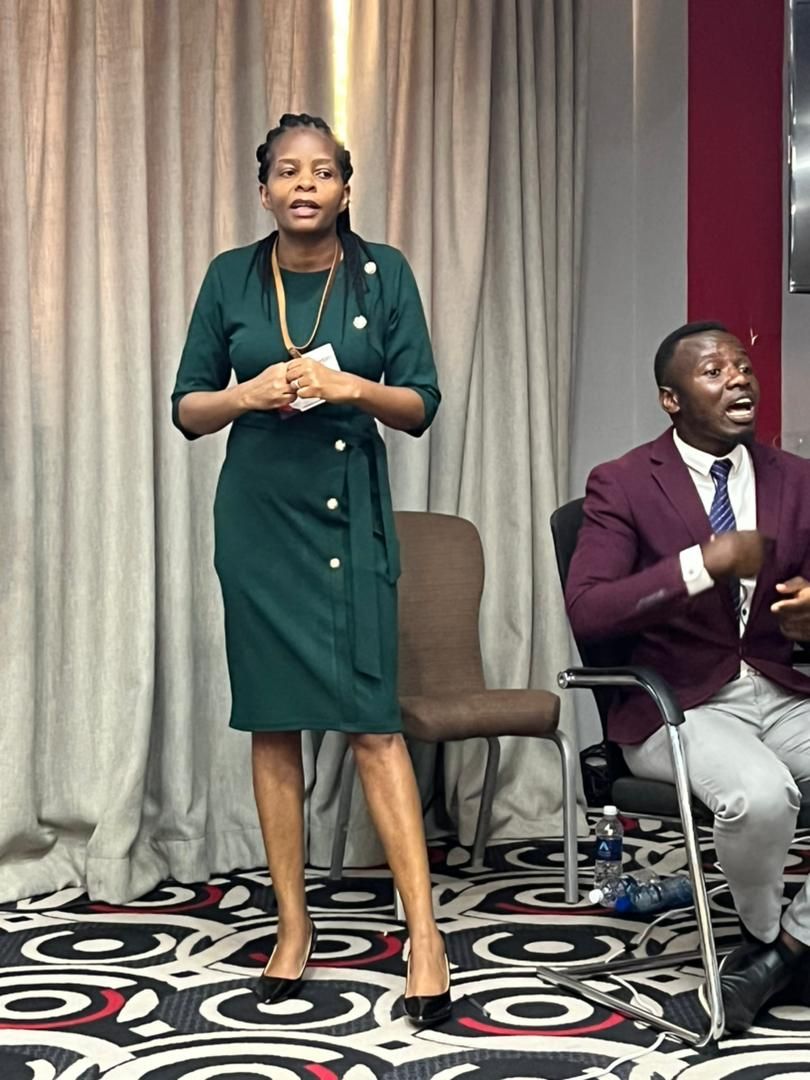Media Urged To Stop Representing Persons With Disabilities Incorrectly

Media organizations have been urged to stop misrepresenting persons with disabilities in their reporting.
According to various speakers at the disability reporting training by Internews held on 6th and 7th December, media always focuses on a person's disability instead of their achievements.
Harun Hassan, the Executive Director of the National Council for Persons with Disabilities (NCPWD) criticized the approach taken in the implementation of disability inclusion, citing that it is as a charity model instead of a human rights model.
Project Manager at Internews Jackie Lidubwi urged journalists to always emphasize on Persons With Disabilities' abilities, not their limitations.
She observed that media's choice of vocabulary while reporting on disability matters stigmatizes persons with disabilities, for instance, she said, using the word "wheelchair-bound person," is demeaning and using their names sounds better than their disability.
Other terms highlighted by Lidubwi include "disabled," "autistic," and "deaf person," she advised journalists that while reporting, they should always start with the person as a noun followed by the adjective like a person who is blind, with autism.
Her sentiments were echoed by Dr. John Ndavula, a communication lecturer at St. Paul University who said that language used and the choice of words is important when reporting a story.
He explained that language can exclude people and therefore editors should adopt the "person-first" language than "disability first".
He said good disability reporting should also adopt use of descriptive words and portray people in good light.
According to Ndavula, journalists should avoid emotional words such as ‘unfortunate’ ‘pitiful’, sad music, or melodramatic introductions while reporting on disability.
Below are dignity words to use:
| USE | AVOID |
| Persons With Disabilities | People living With Disabilities/handicapped/crippled/disabled |
| Person who has/person with...(Autism),cerebral palsy, epilepsy | Victim of cerebral pals/autism |
| Uses a wheelchair | Restricted, confined to a wheelchair |
| Deaf | Deaf and Dumb |
| Born with… | Birth defect |
| Psychiatric history/psychiatric disability/emotional disorder/mental illness | Crazy/insane/lunatic/mental patient |
| Learning disability/mental retardation/developmental delay/ADD/ADHD | Slow/retard/lazy/stupid |
| Visually Impaired | Blind |
| Physical disability | Physically challenged |
Other terms to avoid in reporting include:
Abnormal, burden, deformed, disfigured, incapacitated, imbecile, maniac, maimed, madman, moron, stricken, victim.
It is important to communicate with simple language, respectful language, and in a variety of ways.
Tags: Ncpwd Signstv Internews John Ndavula Jacki Lidubwi


